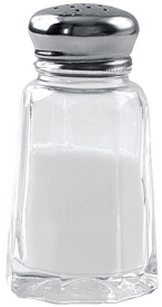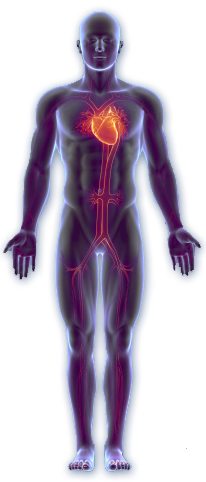

High blood pressure is a common problem in our times. This is a dangerous phenomenon because we are not physically aware of it. And it can cause a heart attack or stroke. However, you can protect yourself from it by introducing a few changes in your lifestyle.
Treatment of high blood pressure usually involves the administration of drugs. In many cases, it is justified, but very often it is possible to achieve perfect blood pressure and improve general health without taking it.
Until a few hundred years ago, hypertension was an almost unknown phenomenon. So what has changed since then?
Here are some simple changes to make to lower your blood pressure. Solving the problem from the first point eliminates the most common causes of hypertension:
High blood pressure is often the result of the so-called metabolic syndrome, especially in overweight people. Reducing the amount of carbohydrates you eat can have excellent health effects.
Research on low-carbohydrate diets has shown that their use improves blood pressure to a greater extent than other types of diets. It also helps to get rid of excess weight and improves blood sugar levels.
 Reducing the amount of salt consumed may slightly lower blood pressure, but studies have shown that this effect is minimal in the long term, with the reduction only being 1mmHg. There is currently no evidence that salt intake influences the incidence of heart disease. It is not known whether reducing the amount of salt you eat will improve your overall health or not.
Reducing the amount of salt consumed may slightly lower blood pressure, but studies have shown that this effect is minimal in the long term, with the reduction only being 1mmHg. There is currently no evidence that salt intake influences the incidence of heart disease. It is not known whether reducing the amount of salt you eat will improve your overall health or not.
Much of the salt we consume comes from various types of junk food, ready-made meals, bread, i.e. products that are avoided on a low-carbohydrate diet. Its hormonal effects also make it easier for the urine to excrete excess salt. This could explain some of the drop in blood pressure levels.
Demonizing salt is exaggerated. By following the principles of a low-carbohydrate diet, you can use salt with a clear conscience.
The pressure can be easily lowered by avoiding the things that raise it. Here are a few of them:
This doesn’t mean giving up coffee or alcohol altogether, but if you know you’re going overboard with coffee or drinks, it’s a good idea to reduce it. In addition to its beneficial effects on blood pressure, quitting smoking reduces the risk of many other diseases.
Regular exercise can help lower your blood pressure and burn carbohydrates.
Research indicates that omega-3 fats may help lower blood pressure (especially systolic blood pressure). Vitamin D supplementation in the event of a deficiency, which occurs especially often in winter, can lower systolic blood pressure by 4 points and diastolic blood pressure by 3 points.
 Heart: Drug treatment is recommended for severely elevated blood pressure (160 systolic/100 diastolic). If there are other risk factors (smoking, diabetes, or obesity) in a given case, treatment is recommended in the case of slightly elevated blood pressure (over 140/90).
Heart: Drug treatment is recommended for severely elevated blood pressure (160 systolic/100 diastolic). If there are other risk factors (smoking, diabetes, or obesity) in a given case, treatment is recommended in the case of slightly elevated blood pressure (over 140/90).
Until recently, there was no evidence that medications improved the health of people with moderately high blood pressure (140-159 systolic and/or 90-99 diastolic). Only recently has it been proven that lowering systolic blood pressure to 120 with medication reduces the risk of heart disease. Unfortunately, it is also associated with an increased risk of side effects.
The interpretation of the results differs slightly in the case of diabetics, and the maximum acceptable within the norm is 130/80 – 85. However, the sense of using drugs in the case of slightly elevated blood pressure is debatable, and diabetics should use the same standards as people with heart disease..
Taking the foregoing into consideration, the average blood pressure limits above which pharmacological treatment is required are:
Slightly elevated blood pressure should prompt you to make changes to your lifestyle to improve your overall health and reduce your risk of disease.
Receive tips, articles and all the goodies absolutely free, straight to your inbox!